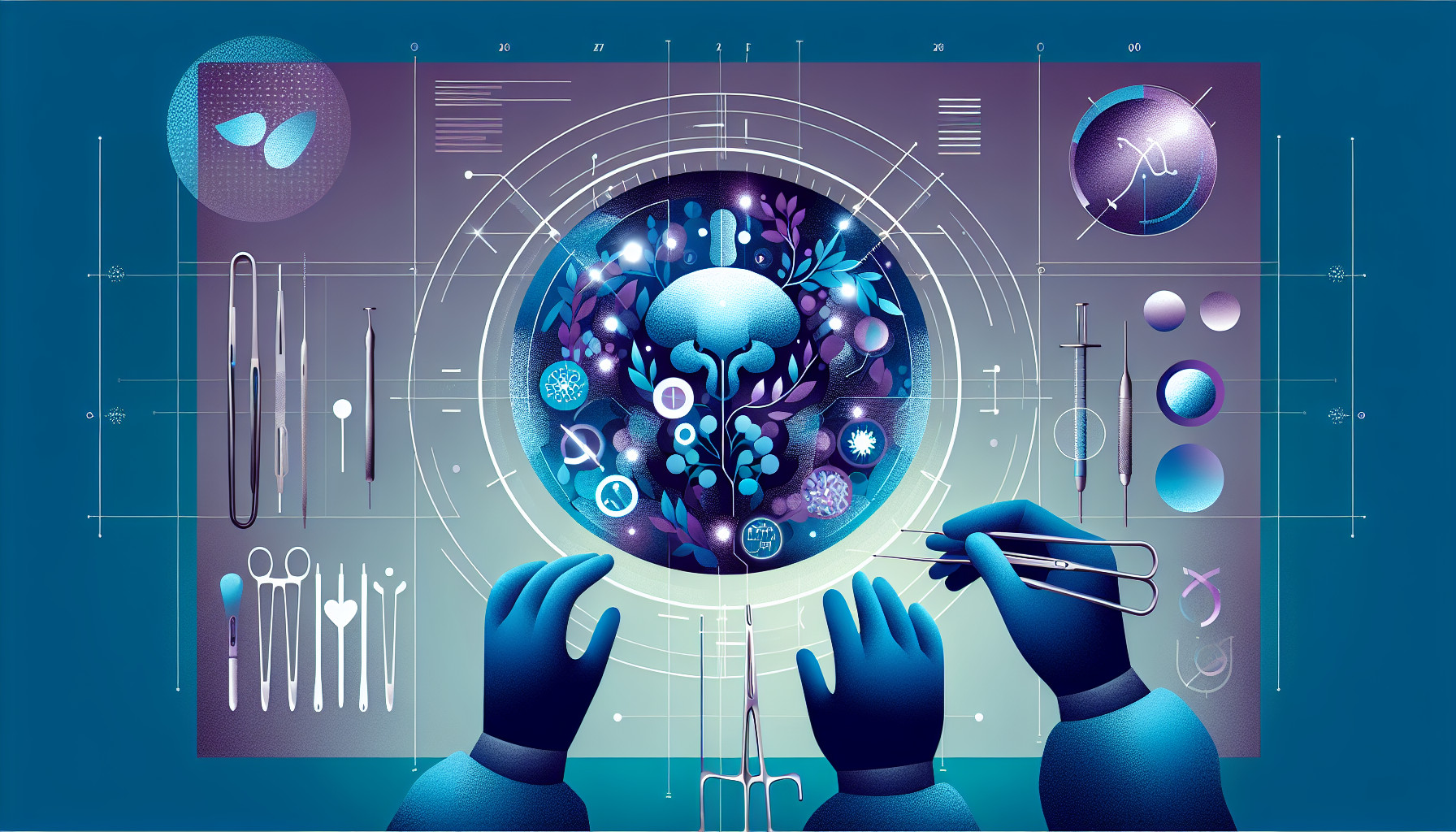Our Summary
This research paper discusses the importance of checking the reproductive system of bulls for any abnormalities. Problems with the scrotum and testes can lead to infertility. Common issues include extra fat around the scrotum, skin defects on the scrotum, or swelling on one side of the scrotum. These issues should be investigated further. If problems are found, it is often necessary to diagnose and treat them early, usually with surgery, to make sure the bull can reproduce successfully. The paper provides more information about these conditions and potential treatments.
FAQs
- What are some common deformities in the bovine scrotum and testes that can lead to infertility?
- What is the importance of early diagnosis and surgical intervention in cases of abnormalities in the bovine scrotum and testes?
- What therapeutic modalities are provided for conditions like Cryptorchidism, Inguinal hernia, and Unilateral castration in bulls?
Doctor’s Tip
A helpful tip a doctor might tell a patient about undescended testicle surgery is to follow post-operative care instructions closely to ensure proper healing and minimize the risk of complications. This may include avoiding strenuous activities, keeping the area clean and dry, and taking any prescribed medications as directed. It is also important to attend follow-up appointments with the doctor to monitor progress and address any concerns.
Suitable For
Patients who are typically recommended undescended testicle surgery include those with cryptorchidism, a condition in which one or both testicles fail to descend into the scrotum. This condition can lead to infertility and an increased risk of testicular cancer. Surgical intervention is often necessary to correct the placement of the undescended testicle and prevent potential complications.
Timeline
Before undescended testicle surgery:
- Patient may notice a missing or undescended testicle during self-examination or routine physical examination.
- Patient may experience discomfort or pain in the abdomen or groin area.
- Patient may undergo diagnostic tests such as ultrasound or blood tests to confirm the diagnosis.
- Patient may be advised by their healthcare provider to undergo surgery to correct the undescended testicle.
After undescended testicle surgery:
- Patient will have a follow-up appointment with their healthcare provider to assess the surgical site and monitor for any complications.
- Patient may experience some discomfort or swelling in the scrotum following surgery.
- Patient may be prescribed pain medication or antibiotics to help with recovery.
- Patient will be advised to avoid strenuous activity and to rest for a period of time after surgery.
- Patient will be instructed on how to care for the surgical site and when to follow up with their healthcare provider for further evaluation.
What to Ask Your Doctor
- What is the reason for the undescended testicle surgery?
- What are the potential risks and complications associated with the surgery?
- What is the success rate of the surgery in terms of correcting the undescended testicle?
- What is the recovery process like after the surgery?
- Will there be any long-term effects or implications of the surgery on fertility or sexual function?
- Are there any alternative treatment options available for an undescended testicle?
- How soon after the surgery can normal activities be resumed?
- Will there be any follow-up appointments needed after the surgery?
- What signs or symptoms should I watch out for after the surgery that may indicate complications?
- Are there any lifestyle changes or precautions I should take after the surgery to support healing and prevent further issues with the testicle?
Reference
Authors: Armstrong CL, Baird AN. Journal: Vet Clin North Am Food Anim Pract. 2024 Mar;40(1):69-79. doi: 10.1016/j.cvfa.2023.09.003. Epub 2023 Dec 16. PMID: 38105174
